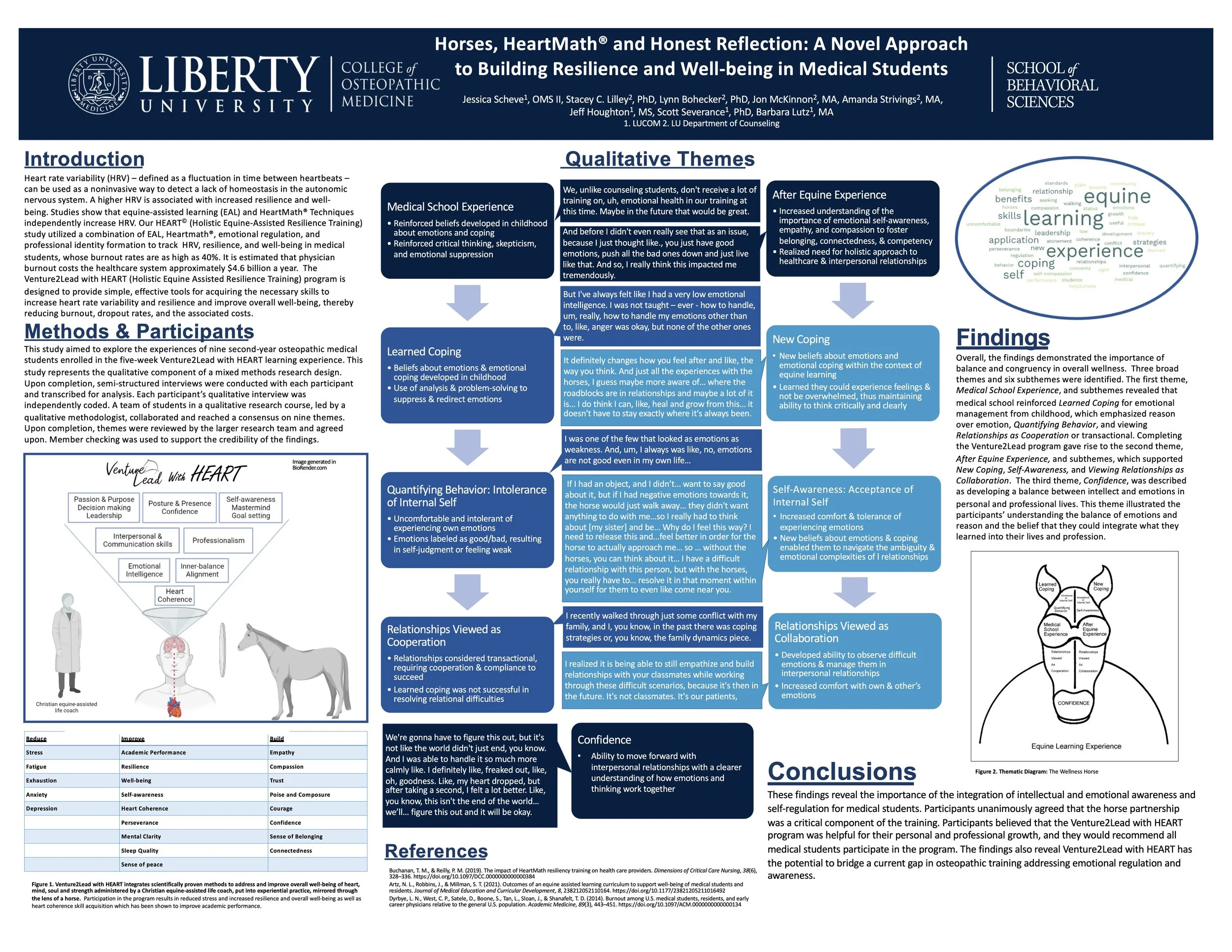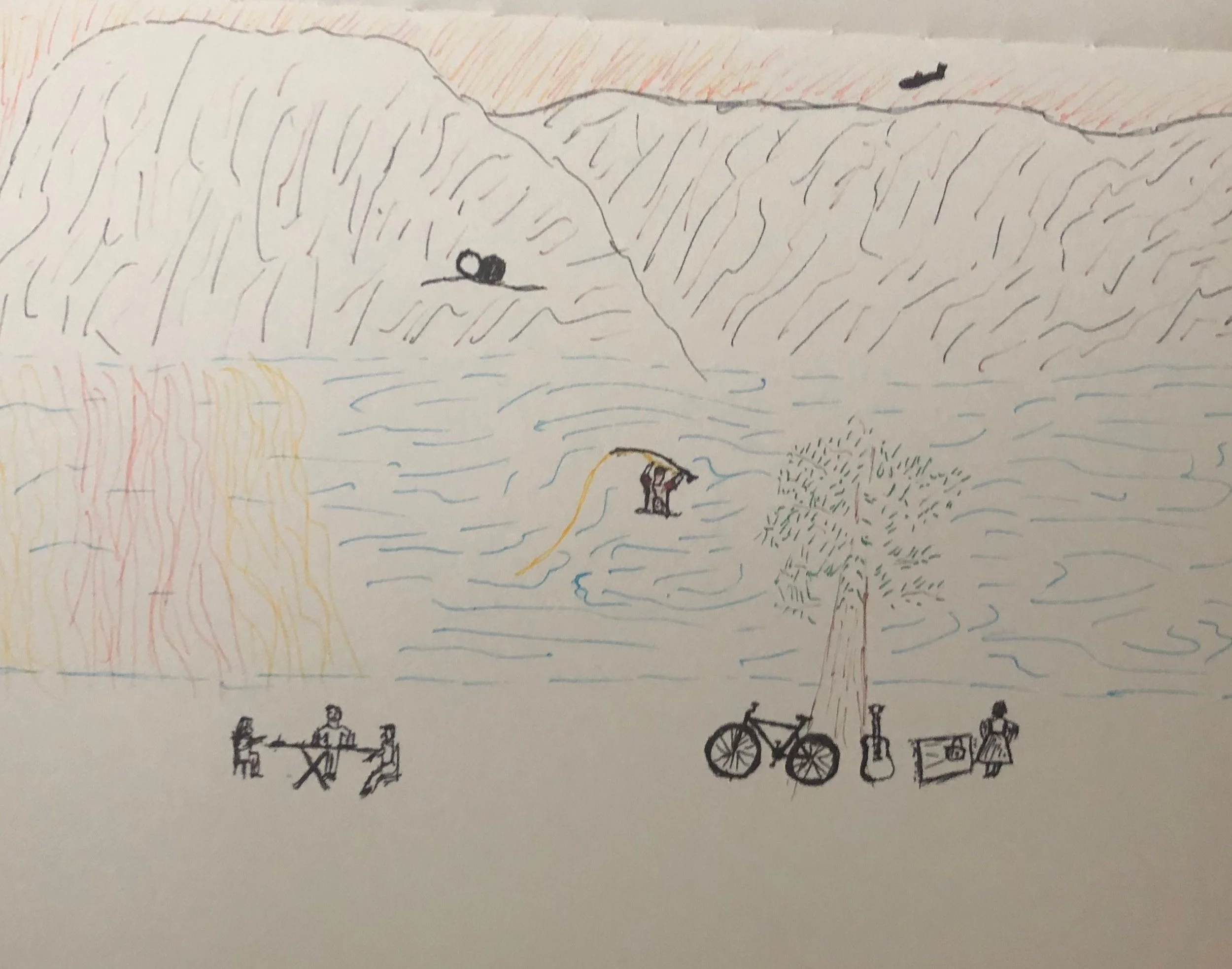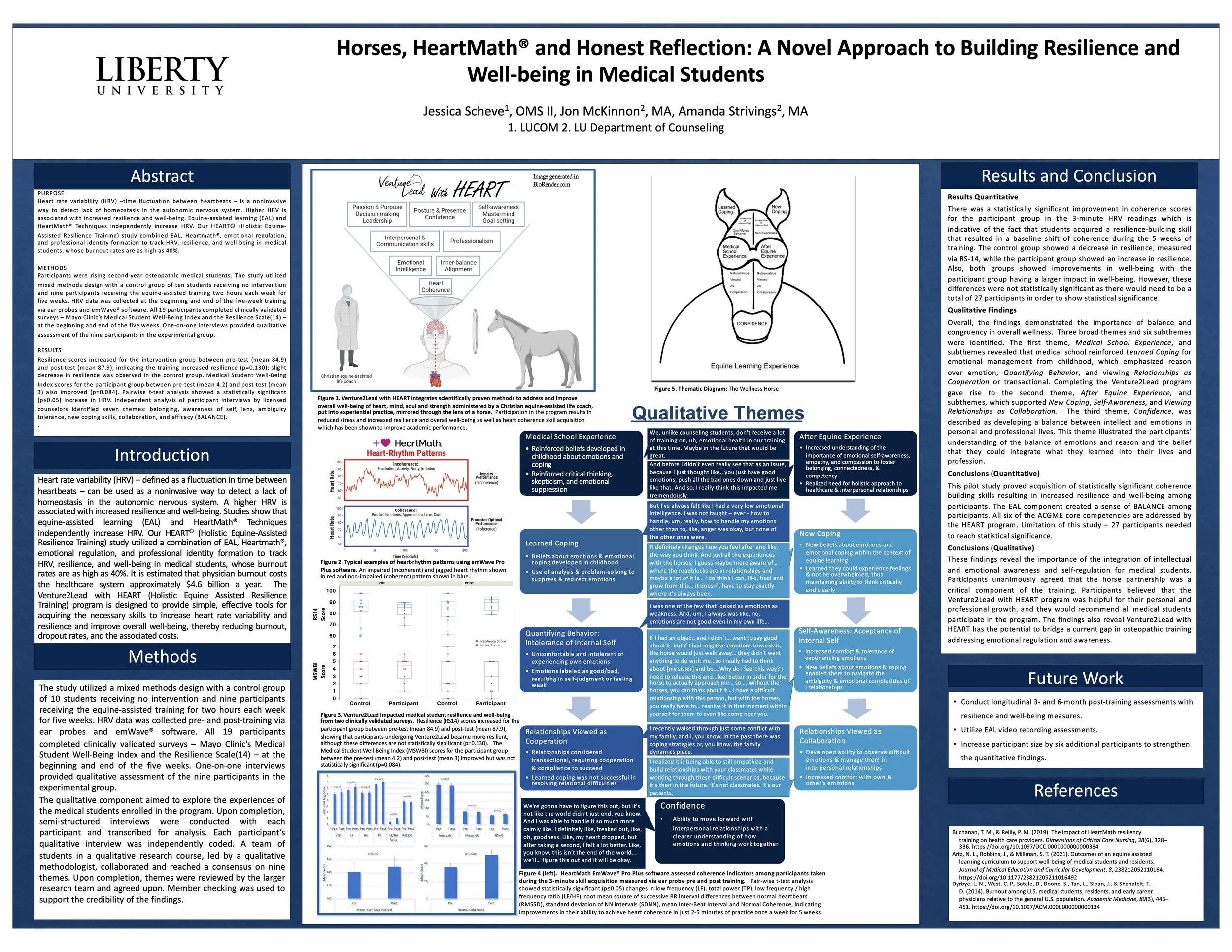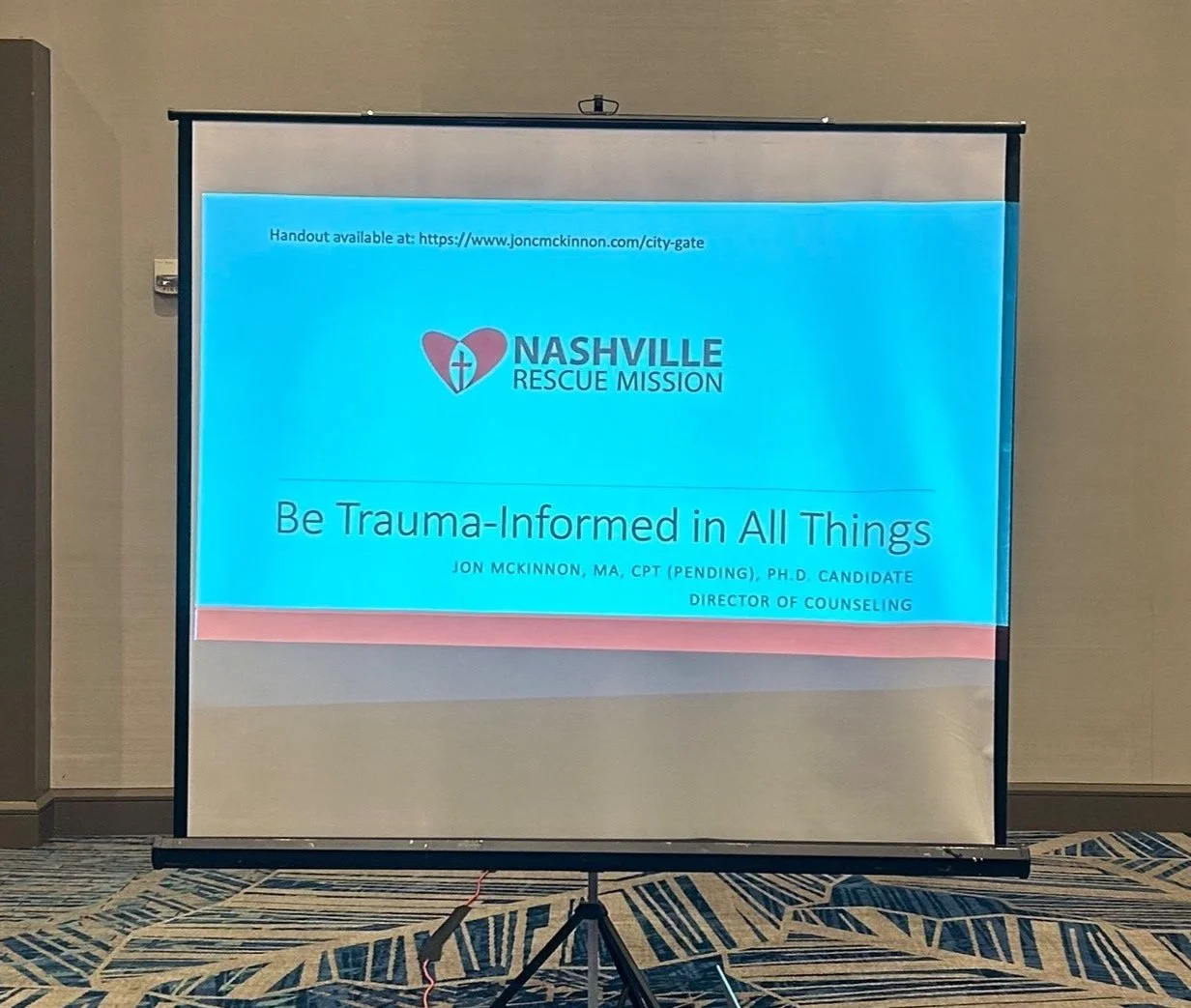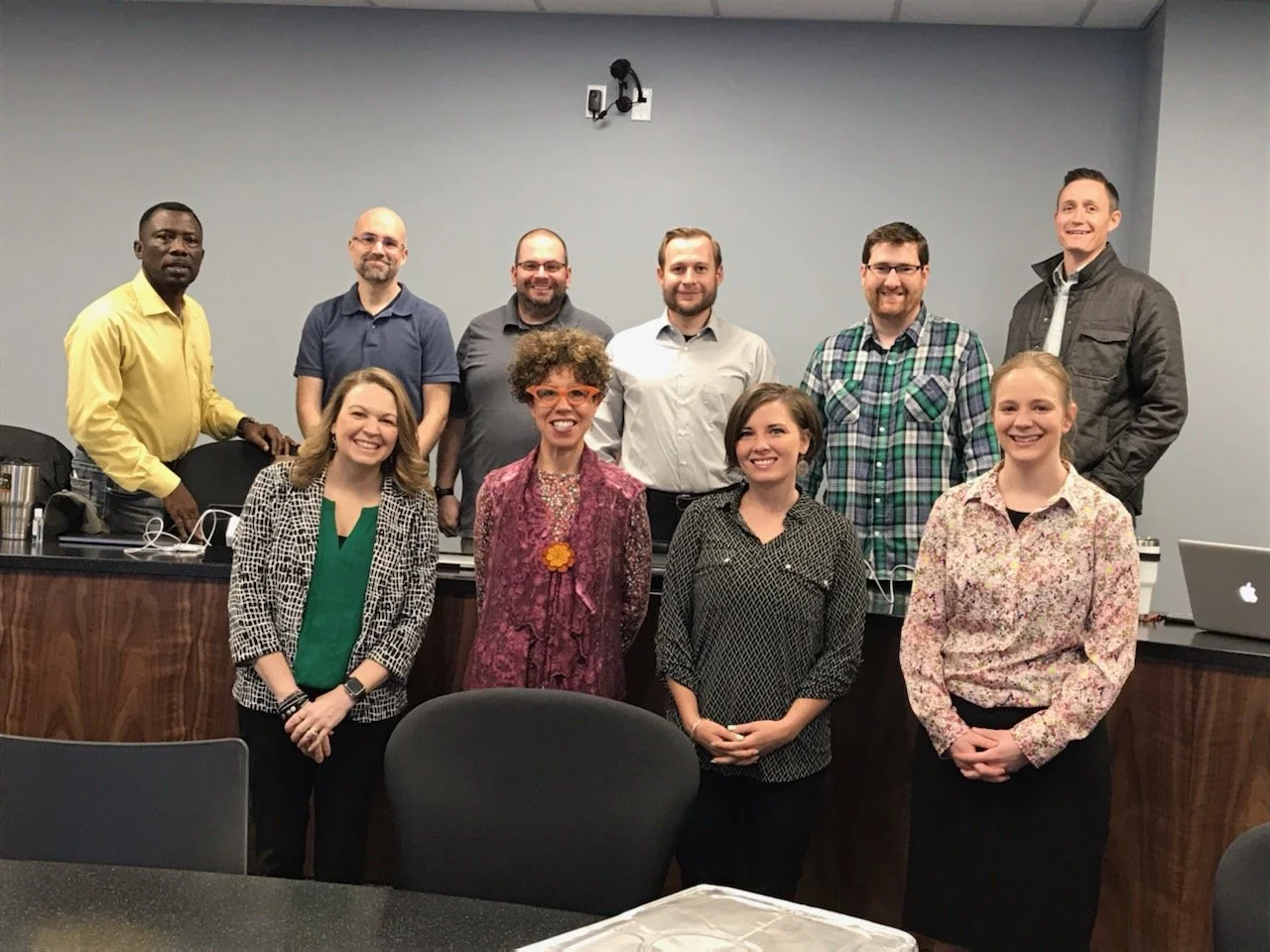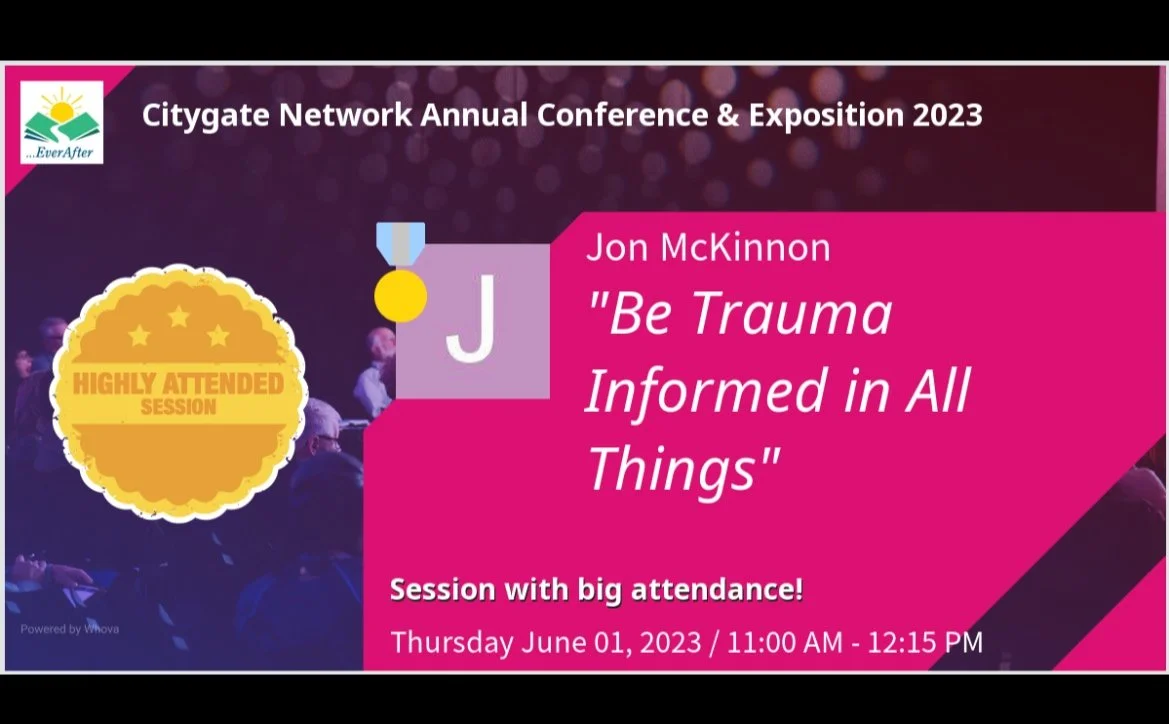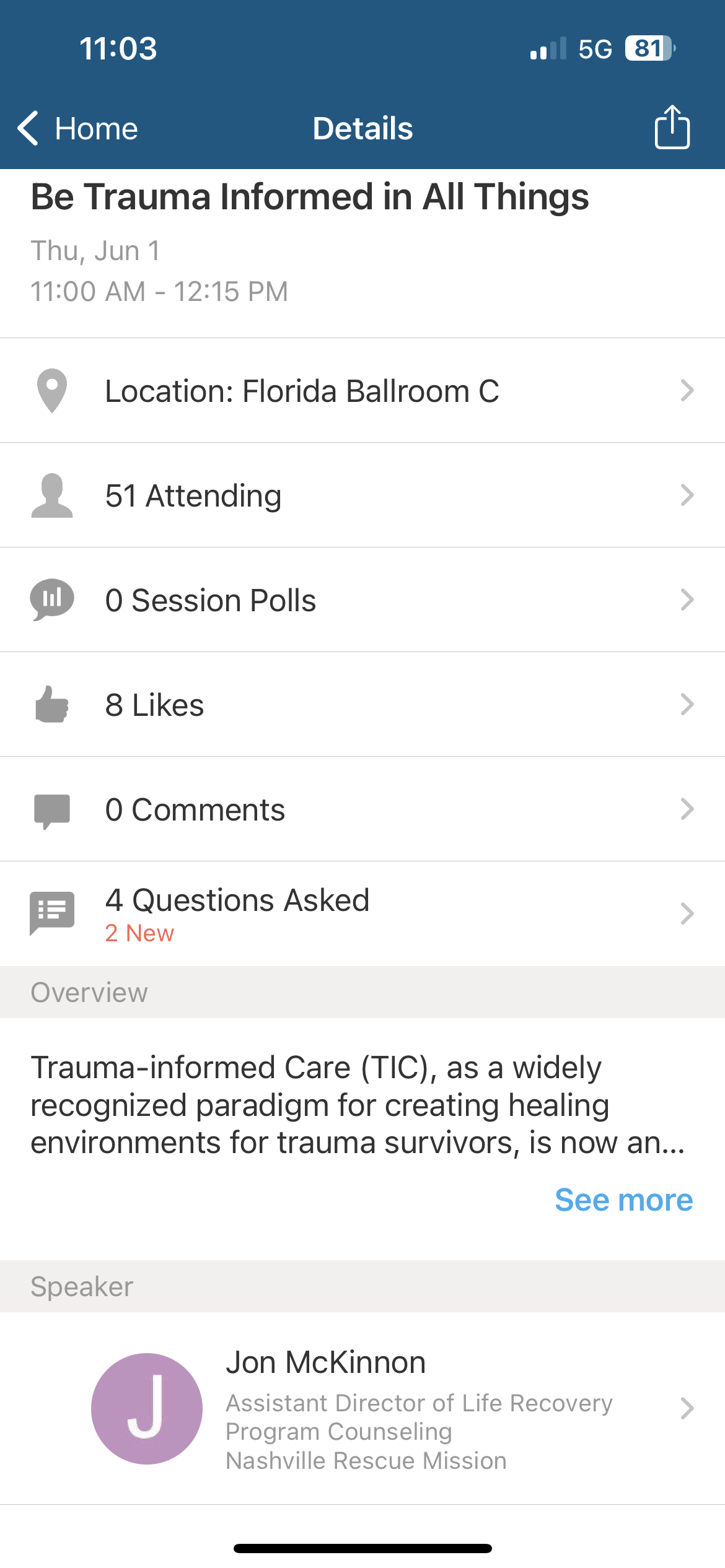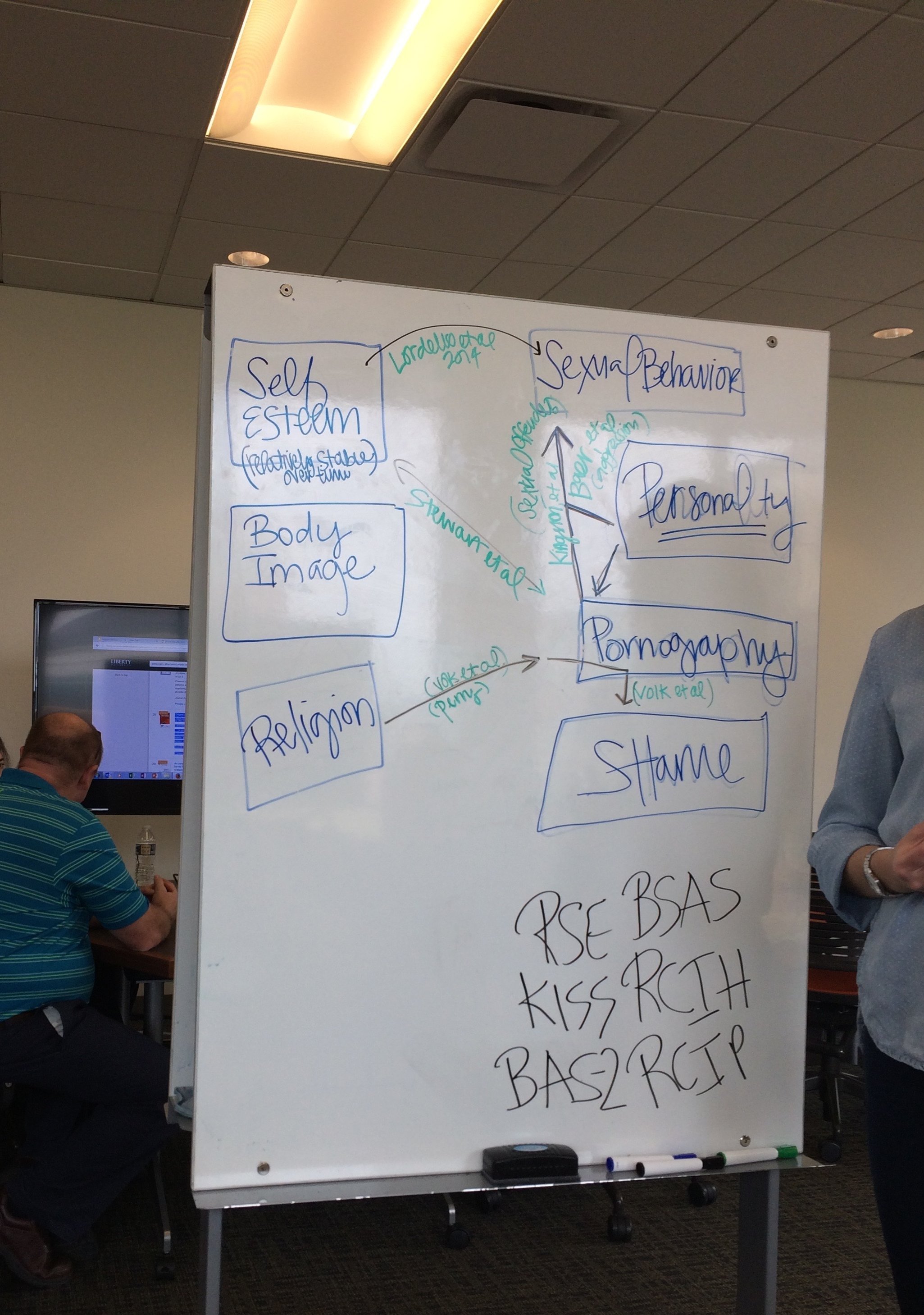
Research & Scholarship
CACREP RESEARCH STANDARDS
a. research designs appropriate to quantitative and qualitative research questions
b. univariate and multivariate research designs and data analysis methods
c. qualitative designs and approaches to qualitative data analysis
d. emergent research practices and processes
e. models and methods of instrument design
f. models and methods of program evaluation
g. research questions appropriate for professional research and publication
h. professional writing for journal and newsletter publication
i. professional conference proposal preparation
j. design and evaluation of research proposals for a human subjects/institutional review board review
k. grant proposals and other sources of funding
l. ethical and culturally relevant strategies for conducting research
The moment we were Zoombombed while presenting at Nashville Area Association of Christian Counselors
A poster from the LUCOM research team I am a part of. This is the poster I designed for Liberty Research Week, but then I found out we had to use a template. I liked this version better.
Reflections
Before starting the CES program, I had performed basic research at my place of employment. Access to large quantities of data was irresistible. However, I learned to conduct good research when I started my classes. I knew I liked research and knew it had its place, but I did not think it would become something I enjoy to the current level. When I was in COUC 740, I will never forget something Dr. Volk said that changed my perspective. He asked the class if we were in the profession to help others. He noted that we can impact one person’s life in the counseling office. Though this is important and needed, it is one person at a time. He asked us to think about the potential of good research - it has the potential to impact hundreds and perhaps even thousands of lives. That moment resonated with me to the degree that it changed my perspective forever.
As a researcher, I grew in many ways, but the most significant way I grew was in my ability to perform qualitative research. I was familiar with and capable of performing quantitative analysis before entering the CES program; however, my time within the program opened my eyes to the strengths of qualitative research. Once I had completed the qualitative methods class, I was sold, and qualitative research became my primary research method. I plan to build upon this new passion as I continue my research journey. My dissertation draws from qualitative methodology, and I would like to go back and study a program I developed at work through a qualitative lens. I also have some more research I want to do that will be an extension of my dissertation.
One of the many 10-minute drawings I did while in Dr. Sosin’s classes. This one is from qualitative research.
The most extensive area I feel I need to grow in as a researcher is the speed at which I conduct research – which is currently very slow. This makes my research methodical and detailed, but I struggle to determine when to stop my research and writing. To have any level of productivity, I will need to change this. My current strategy is to participate in more research groups and get a feel for how other researchers avoid getting bogged down. I have also spoken with some professors and asked them to review some of my papers to see where I can pare them down, as I often exceed most journal word requirements.
Scripture says that Jesus is at God’s side and pleads our case (Romans 8:34). The Holy Spirit also intercedes for us, communicating what we cannot. In the same way, I think research allows us to intercede for others. In my paper for qualitative research, one of the closing paragraphs contains the following, which aptly summarizes my thoughts:
Finally, I appreciate that QLR aligns with a primary tenet of my faith and profession, as it operates under the guiding principle that all people are important and everyone’s lived experience matters. Indeed, everyone deserves to be heard, and when that is not possible, the researcher can become the voice of the marginalized.
ARTIFACTS
Multivariate analysis being performed by my group in COUC 745, standard b.
Presenting virtually at the Virginia Counseling Association Conference for 2021.
Actual poster used during research week highlighting the mixed methods approach.
Artifact 1
This first document is a literature review I wrote during my advanced research design class. It shows my ability to write a literature review, something relevant for all research (a, d), and my ability to write professionally (h).
Artifact 2
This is the paper I wrote for my qualitative methods class. It demonstrates comprehension of my knowledge of qualitative methods (a, c).
Artifact 3
Transforming God Image Through an Experiential Spiritual Retreat was the paper I wrote in my research dissemination class. This paper meets the standard h. This was based on a program I had designed to help our participants at work with their God image. I wrote part of the grant (k) that secured the funding to take our participants on a one-day retreat once a quarter to have a quiet place to practice meditation. Additionally, this paper illustrates my ability to write professionally (h).
Artifacts 4 & 5
The following two papers are research proposals. The first was written during my advanced research design class. The second research proposal I wrote for my supervision class concerned supervision and personality. These show my ability to design appropriate quantitative methods (a) and explore what instruments I would use to gather data (e). They also illustrate my ability to develop relevant research questions (g) and design research proposals for human subjects (j). The second proposal covers ethical considerations of the research (l).
Artifact 6
This is a copy of a presentation proposal. It contains two drafts with comments from Dr. Kirk, who helped me with the presentation and proposal. This proposal was accepted, and Dr. Kirk and I were able to present it at the 2021 Virginia Counseling Association Conference. This meets standard i.
Artifact 7
This certificate signifies my most recent completion of CITI training (j, l).
Artifact 8
The following annotated bibliography was for my advanced research seminar. Unfortunately, all of this work was for naught, as the topic for my dissertation changed by the end of the intensive week.
Artifacts 9 & 10
This link is a lesson plan I developed for COUC 747 aimed at a graduate-level research and program evaluation class. In this lesson plan, I explore how to evaluate a program using a logic model with the class (f). This lesson aligns with the PowerPoint I referenced in my teaching section.
Artifact 11
This assignment required us to identify various models from the literature. I had to identify quantitative methods (a) that used univariate and multivariate designs (b) and made use of emerging research practices (d). Some of this required exploring the basis of instrument design (e).
Artifact 12
This is a synthesis paper from my qualitative research class. Here, I review and synthesize the various qualitative methods (a, c, d).
Artifact 13
This is a copy of my pretest for the research dissemination class. This assignment requires us to answer questions related to models and methods of evaluation (f), how to write for a journal (h), and how to write a conference and grant proposal (i, k).
Reproductions & Additional Artifacts
The following link will take you to my research and scholarship bonus page with reproductions. It is password-protected, so you must contact me to gain access.
My COUC 810 classmates.
Presentations
Local
Scheve, J., McKinnon, J. C., & Strivings, A. (2023, April 17-21). Horses, HeartMath and honest reflection: A novel approach to building well-being in medical students [Poster Presentation]. Presented at Liberty Research Week.
McKinnon, J. C. (2022, June 17). Expanding your meditative toolbox: Utilizing Ignatian spiritual practices with your clients. Presented at Nashville Area Association of Christian Counselors, Nashville, TN.
State
McKinnon, J. C. & Kirk, K. (2021, November 4-6). Expanding your meditative toolbox: Utilizing Ignatian spiritual practices with your clients [Conference Session]. Presented at Virginia Counseling Association Conference.
National
McKinnon, J. C. (2023, May 31-June 3). Be trauma-informed in all things [Conference Session]. Presented at Citygate Conference, Orlando, FL.
A link to my handout from this presentation.
McKinnon, J. C. (2022, October 28-30). Utilizing Ignatian spiritual practices with clients [Conference Session]. Presented at ACPE Psychotherapist Division Conference, Kanuga, NC.

